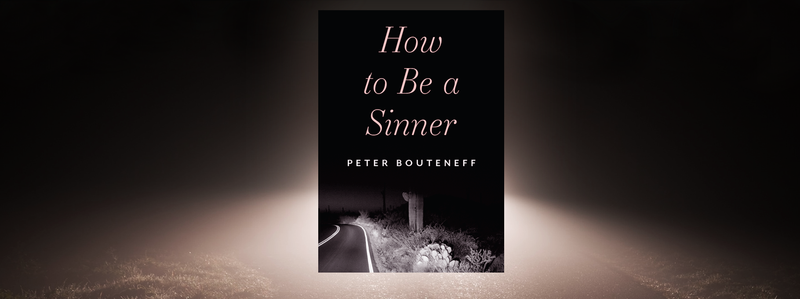Review: How to Be a Sinner
Posted by SVS Press on 9th Sep 2020
The Sinner Identity Done Right
Having come up with a provocative and compelling title, Peter Bouteneff more than delivers on its promise in How to Be a Sinner from St Vladimir’s Seminary (SVS) Press.
Bouteneff, a professor of systematic theology at St Vladimir’s Orthodox Theological Seminary and editor of SVS Press’s Foundations Series, shows, in a systematic way, how to develop a healthy, healing way of identifying yourself as a sinner without the neurosis or poor self-image that can lead to detrimental habits. “True contemplation, that is, of other people, of the created world, and of God—of everything—is contingent upon our awareness of sin in ourselves,” writes Bouteneff. “We cannot see things as they are if we don’t see ourselves as we are.”
He writes that this “true perception of reality” will help motivate positive change and correction of your life through love and make you realize your total dependence on God.
Bouteneff takes great pains to examine the nature of the self and to explain that it is not split in half with one half delighting in doing good while the other half delights in sin. He writes:
Now, all of this still might sound as if we suffer from multiple personality disorder. Do we have two selves, an inner to love and an outer to hate? No—what we have is one innermost self that is broken by sin. That sin, these foibles and passions, are not a second self; they are the dirt on the mirror. The Orthodox funeral service reminds us of our real identity when we sing, “I am the image of your ineffable glory, though I bear the brands of transgressions.”
Bouteneff breaks down his ideas carefully, exploring the sinner identity and its “gifts,” and examining in depth the concepts of self-esteem, self-denial, and self-love. He also examines compunction, mercy, forgiveness, and divine judgement. He includes a very helpful “theological appendix” where he sets out the Biblical basis for the definition of a human being and of sin.
But his concepts are not only biblical, they are firmly located throughout the Orthodox tradition. The Church’s prayer tradition, he writes, “perpetually balances giving God glory and thanks, begging God’s protection and help, and confessing ourselves as sinners needing God’s mercy.” He discusses the “bright sadness” of the season of Lent and why the deeply penitential Canon of St Andrew remains one of the most popularly attended services.
In building his thesis, Bouteneff quotes modern day elders as well as the fathers of the Church. He uses their words to show that the individual must balance a healthy awareness of the “nobility and dignity” of their own soul with humility before God. He quotes Macarius of Egypt: “The one who has learned to know the dignity of his own soul is in a position to know the power and the mysteries of the Godhead, and thereby to be the more humbled.”
We call ourselves “sinners” in much of our church life. Bouteneff shows that the sinner identity—when done right—brings peace of mind, a clear conscience, and love for others.
Other books by Peter Bouteneff from SVS Press:




